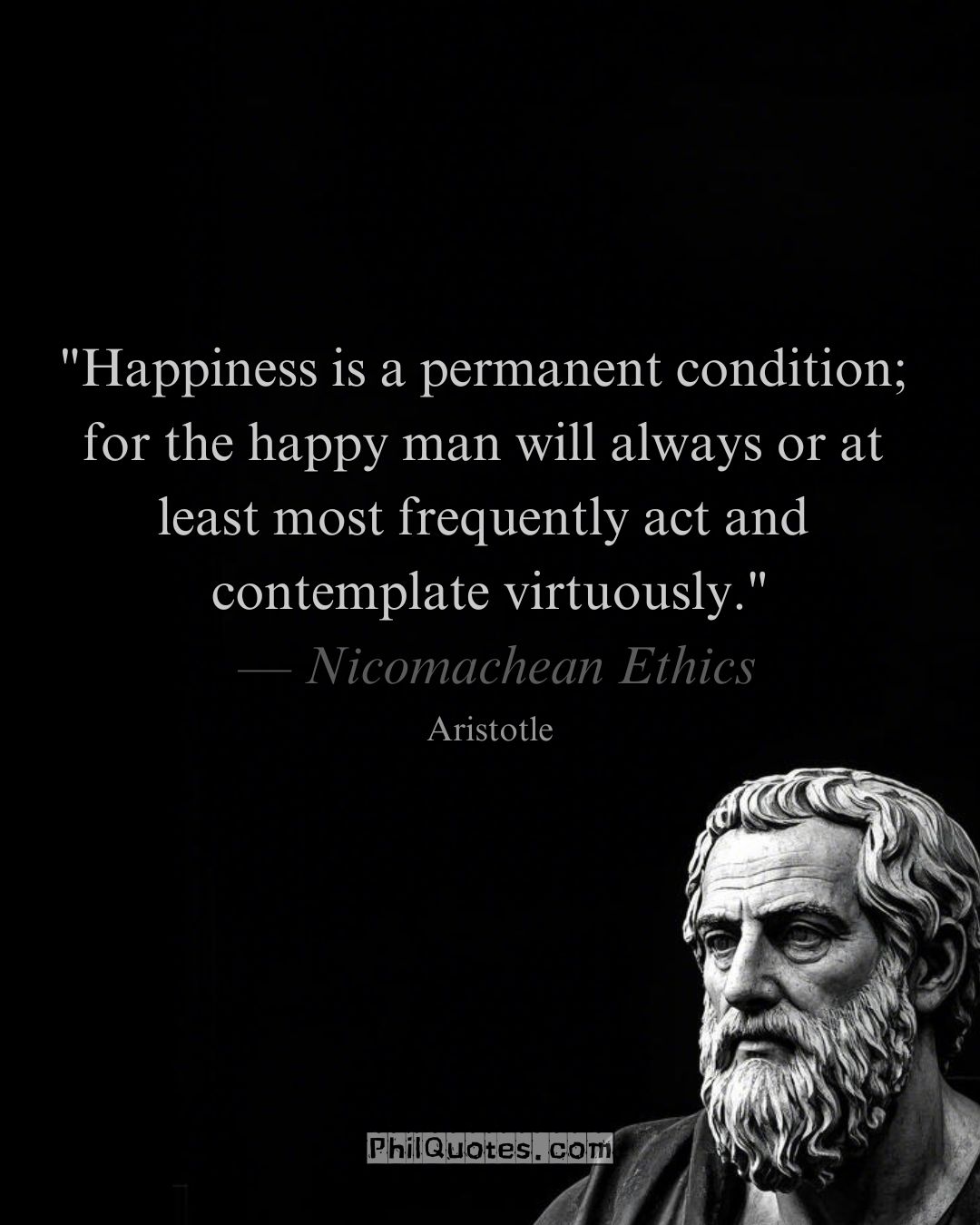
“Happiness is a permanent condition; for the happy man will always or at least most frequently act and contemplate virtuously.”
— Aristotle, Nicomachean Ethics, Book I, Chapter 10
Explanation:
Aristotle posits that true happiness (eudaimonia) is not a fleeting emotion, but a stable state of being forged through habitual virtue. Like a river’s persistent flow shaping a canyon, daily ethical choices (honesty, courage) and intellectual reflection gradually carve a soul’s capacity for enduring joy.
Real-World Connection:
① Ethical Leadership →
A CEO prioritizes transparency (daily act) → builds team trust (relational virtue) → navigates market crises unshaken (permanent resilience) → proves happiness as corporate culture bedrock.
② Mindful Parenting →
You model patience with toddlers (frequent practice) → nurture family harmony (domestic virtue) → cultivate intergenerational emotional health (contemplative legacy).
③ The Hidden Algorithm →
Aristotle’s formula for permanent happiness:
- Frequency > Intensity: Small, consistent virtues (e.g., daily gratitude journaling) > grand, rare gestures
- Integration > Isolation: Blending action (helping neighbors) with contemplation (studying ethics)
- Legacy > Moment: Planting trees whose shade you’ll never sit under (virtue’s timeless yield)